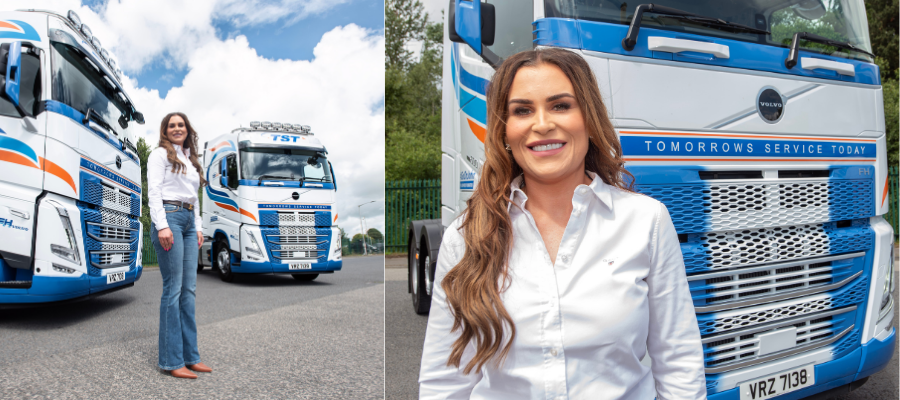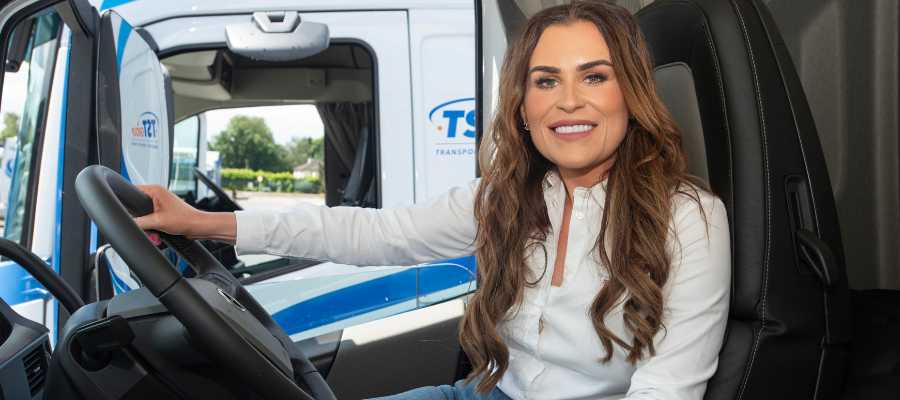🕒 Article read time: 3 minutes
Driving Decarbonisation: Navigating Northern Ireland's Transport Transition

By Maire-Claire Reid, Chair of the Northern Ireland Freight Council.
As I step into the role of Chairperson for Logistics UK’s Northern Ireland branch, I am both honoured and acutely aware of the responsibilities that lie ahead. Our sector stands at a pivotal juncture, with decarbonisation not just a policy directive but an imperative for sustainable growth.
Transport accounts for approximately 20% of Northern Ireland's greenhouse gas emissions, making it the second-highest emitting sector after agriculture. Unlike other sectors, transport emissions have risen by an estimated 21.5% since 1990, underscoring the urgency for transformative action.
Challenges Unique to Northern Ireland
Northern Ireland's logistics landscape presents distinct challenges:
- Infrastructure Limitations: The region requires significant investment in energy infrastructure to support low-carbon fuel production and facilitate modal shifts.
- Regulatory Ambiguity: Businesses face uncertainty due to overlapping international and local regulations.
- Financial Constraints: The high upfront costs of adopting zero-emission vehicles and the need for supportive infrastructure pose financial challenges, especially for SMEs.

Positive Developments and Opportunities
Despite these challenges, there are promising developments:
- Zero-Emission Truck Manufacturing: Wrightbus, based in Ballymena, has expanded into the truck market with its Rightech RT75, a 7.5-tonne battery-electric box truck. This vehicle is designed for urban logistics and is available in both left- and right-hand drive variants, catering to markets across the UK and Europe.
- Hydrogen Fuel Cell Trials: Mannok, a construction materials manufacturer in Fermanagh, has partnered with Hydrogen Vehicle Systems (HVS) to trial hydrogen fuel cell heavy goods vehicles (HGVs). The trial is set to commence in late 2025, positioning Mannok to potentially convert part of its fleet to zero-emission HGVs.
- Policy Commitments: The Climate Change Act (Northern Ireland) 2022 sets ambitious targets, aiming for a 77% reduction in emissions by 2040, with specific mandates for active travel investments. Policy Commitments: The Climate Change Act (Northern Ireland) 2022 sets ambitious targets, aiming for a 77% reduction in emissions by 2040, with specific mandates for active travel investments.

Strategic Path Forward
To capitalise on these opportunities, a collaborative approach is essential:
- Public-Private Partnerships: Developing a comprehensive roadmap for logistics decarbonisation that includes investment in infrastructure and technology.
- Clear Regulatory Frameworks: Providing businesses with definitive guidelines to navigate the transition effectively.
- Financial Incentives: Offering subsidies and support to offset the initial costs associated with adopting green technologies.
Conclusion
The journey towards decarbonising Northern Ireland's transport sector is complex, but with concerted effort and strategic planning, it is achievable. As Chairperson, I am committed to steering our industry through this transition, ensuring that sustainability and economic vitality go hand in hand.
Published On: 17/06/2025 12:13:35
